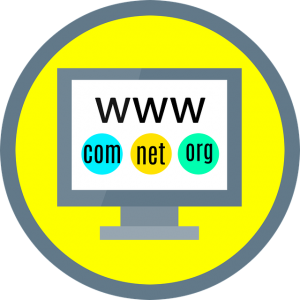Here at Articlez.com, we (of course!) prepare and execute web content orders for our many customers every single day. But, not being mind readers (!) we don’t automatically know what your project requirements are — that is something that you need to tell us.
But many customers ordering web content try to answer the question “What type of content do I need?” But that is not the question that you need to focus on. What is of critical importance is not what content you think you need — but what content your site visitors/customers would find valuable. Let’s talk about that for just a moment…
What Types of Web Content Do Your Website Visitors Typically Look For?
Contrary to popular opinion, it is not really that difficult to begin to pinpoint the types of web content people on your website are looking for. There are several different ways to determine this.

First of all, you can look at data on your sitewide statistics – visitor traffic. If you have access to the right type of analytics, you can look at the actual search queries that people are typing in that have brought them to your site. What are they searching for exactly? Your web content should address those needs.
Secondly, you can look at the sites of your competitors. What content is featured on your competitor’s website that seems to be getting a lot of engagement from their customers and visitors? Look especially at things like the number of comments generated, how many times that content has been shared via social channels like Twitter and Facebook, or the number of other sites that are linking back to that content. The higher the engagement level, the more valuable that content was in the eyes of their readers. Make sure that your content is dealing with a similar set of topics, but with a unique focus.
Finally, take a look at what the industry leaders and influencers are talking about. What web content topics seem to be of interest to their readership? As you are sharing an interest in the same industry/niche, topics of interest that are doing well for them should work well for your site as well.
Web Content Formats – Which is Best for Your site?
When it comes to the “right” or “best” web content, it is not just what is talked about, but how the information is presented that matters.

Perhaps, for your site visitors/readers, the best format might be a PDF file that can be easily downloaded and passed around. On the other hand, some web content is best provided in HTML format to keep layout and formatting elements intact.
Other web visitors might prefer a plain-vanilla text-only style with no formatting, while other users of your web content might favor audio-only format (like a podcast) or something image-based (like a chart, table or infographic). Perhaps they might prefer a combination of both audio and visual formats (like a video) for their preferred web content format.
Again, you can look at both your competition and also sites of industry leaders to find out what types of formats engage at the highest levels – and adopt the same strategy.
Web Content Tone and Style: What Works Best?

What “tone” or “style” would best engage your site visitors? As we use it here, “tone” refers to the emotional impact or response provoked by your web content, while “style” has more to do with the formal aspects of the presentation – like handling formatting, layout, and footnoting.
If you have determined that your best options for web content would be research (which is by definition objective) — like a case study — then an objective style is what you need to aim for.
On the other hand, if you are providing web content like sales or marketing help or tools, then you can be more informal in style and a tone that is more engaging emotionally (good marketing always makes a connection with the audience).
Help Filter The Noise: Research Sources for Your Web Content
If you are getting help from others in the preparation of your web content (whether it is in-house staff, freelancers, or a full-blown content outsourcer), it is always important to try to provide your professional help with sources of information that you consider reliable and accurate.

Why? Well, yes, it is true that pro writers are more than happy (and capable) of doing their own research. But if they draw up a list of sources to draw from, they still won’t know if you (or your customers/site visitors) would also consider them to be reliable sources. Help your writing team to separate the good stuff, the truly strong signals, from all the “noise” out there by giving them a few vetted sources for them to research from. Doing this almost entirely eliminates the possibility of errors of fact creeping into your web content — as you have already hand-selected the sources from which research will be done by the writer.
There are many different types of good sources that could be consulted: Other blog posts – social media comments/interactions — podcasts/webinars — advertising copy — content from newsletters and emails. Whatever the source, in order to be effective for your web content, the information offered must be 100% accurate and helpful in order to be helpful to your writers.
Remember: Content that appeals to you does not guarantee that your site visitors will find it appealing or useful.
The secret to preparing effective web content is to think about things from your customer’s point-of-view. Because it’s not about what content YOU need — it’s about content that THEY need — that matters most.





